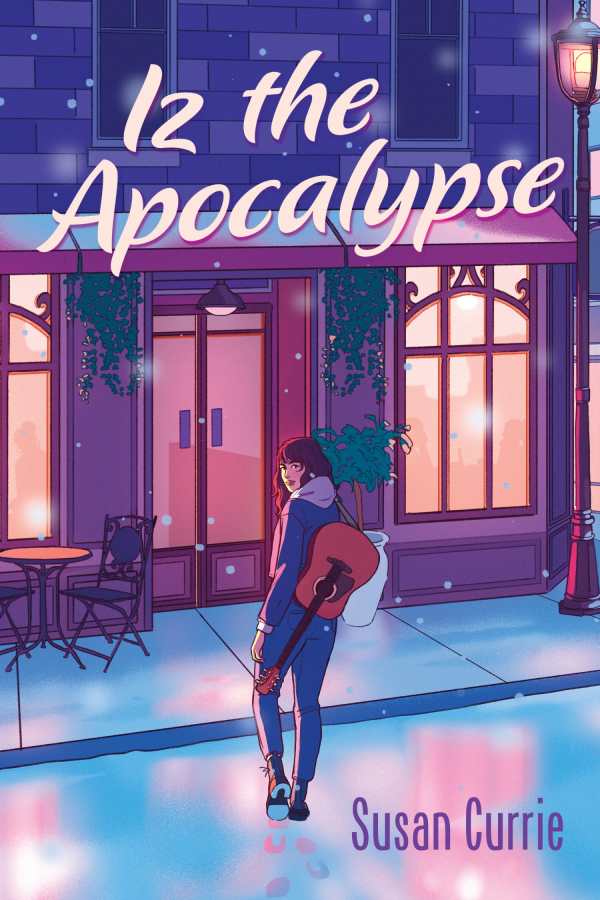Iz the Apocalypse
In the emotive novel Iz the Apocalypse, a musical girl works through her trauma in search of a sense of belonging.
In the emotional whirlwind of Susan Currie’s novel Iz the Apocalypse, a girl in foster care with a passion for music discovers her own voice and works to take control of her own life, finding a support system along the way.
Iz has spent her entire childhood being shuffled around different foster homes, moving from school to school with no sense of community or autonomy. Her current foster mother, Pat, barely pays attention to Iz, as she’s too wrapped up in planning her daughter Britnee’s wedding. When Iz hears Manifesto, a performance group from the Métier School of Music, play together for the first time, she does everything in her power to get herself into that school. Iz is admitted but goes to complicated lengths to keep it a secret from her foster family.
In its first half, during moments of emotional turmoil for Iz, her traumatic past is hinted at, emphasizing that she is not in a place to face her memories yet. Her trauma is a constant presence in the story, exemplifying how painful experiences stay with a person always. Much of the story is told via conversations that keep the tension high; Iz is constantly on edge, scared of being caught in the multiple lies she’s woven in order to audition for and attend Métier.
Iz faces several challenges throughout the book, and these challenges compound as she is made more aware of the world around her. In the first half of the book, she is so focused on the tangible, material things she needs to get into Métier, such as money and transcripts, that the people standing directly in her way seem to be Pat and Britnee. But during a midway peak, the perspective on Iz’s struggles zooms out, revealing the bigger picture—including the systemic issues within the foster care system that prevented Iz’s potential from being recognized earlier. This shift turns those who seemed like direct antagonists into mere representatives of a larger issue, humanizing them and allowing for reconciliation. Iz goes from being fiercely independent out of necessity to learning how to accept support from those around her—who do care for her.
The book’s characterizations are somewhat undermined by people’s introductions coming via long lists of descriptors. Further, the prose is muddied by frequent and disconnected metaphors. Its descriptions of music, however, are beautiful, feeding into sentences that flow like music themselves, with visceral and embodied images. Music—as an art, a study, and a form of expression—is treated with profound care.
In the emotive novel Iz the Apocalypse, a musical girl works through her trauma in search of a sense of belonging.
Reviewed by
Julia Dillman
Disclosure: This article is not an endorsement, but a review. The publisher of this book provided free copies of the book and paid a small fee to have their book reviewed by a professional reviewer. Foreword Reviews and Clarion Reviews make no guarantee that the publisher will receive a positive review. Foreword Magazine, Inc. is disclosing this in accordance with the Federal Trade Commission’s 16 CFR, Part 255.

